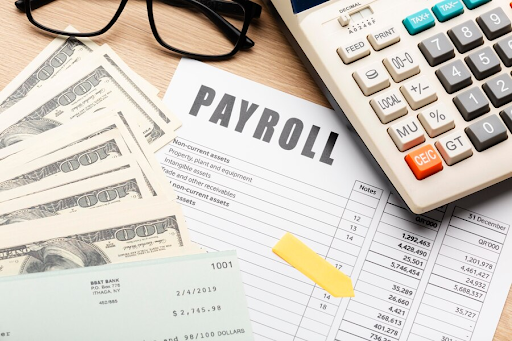Debt Collection Strategies for Small Businesses
Maintaining cash flow and financial stability is crucial for small businesses, and effective debt collection is a vital part of this process. Unpaid debts can significantly impact a small business's financial health, leading to cash flow problems and hindering growth. In this article, we will discuss various debt collection strategies that can help small businesses improve their debt recovery process and maintain financial stability.
Understanding the Importance of Debt Collection for Small Businesses
Impact of Unpaid Debts on Small Businesses
Unpaid debts can have a severe impact on small businesses, affecting their financial health and overall stability.
- Financial Impact: Unpaid debts reduce the available cash flow, making it difficult to cover operational costs.
- Cash Flow Problems: Consistent cash flow is essential for day-to-day operations; unpaid debts can disrupt this balance.
- Business Stability: Accumulating unpaid debts can lead to financial instability, affecting the business's ability to grow and invest in new opportunities.
Benefits of Effective Debt Collection
Implementing effective debt collection strategies can bring numerous benefits to small businesses.
- Improved Cash Flow: Regular collection of outstanding debts ensures a steady cash flow, essential for operational expenses.
- Financial Health: Maintaining good financial health by recovering debts promptly allows businesses to invest in growth and development.
- Business Growth: Efficient debt collection can provide the necessary funds to expand the business and take advantage of new opportunities.
Key Debt Collection Strategies for Small Businesses
Establish Clear Credit Policies
Having well-defined credit policies can help prevent future debt collection issues.
- Credit Policies: Set clear credit terms and conditions for customers to understand their obligations.
- Credit Terms: Specify payment deadlines, interest rates on overdue payments, and penalties for late payments.
- Customer Agreements: Ensure that all customers sign agreements acknowledging the credit policies before extending credit.
Maintain Regular Communication with Debtors
Consistent communication with debtors can help in recovering debts more efficiently.
- Debtor Communication: Regularly remind debtors of their outstanding balances through calls, emails, and letters.
- Follow-Up Strategies: Develop a systematic follow-up strategy to remind debtors about their dues.
- Payment Reminders: Use automated reminders to inform customers about upcoming payment deadlines.
Implement a Structured Collection Process
A well-structured collection process ensures systematic debt recovery.
- Collection Process: Develop a step-by-step process for debt recovery, from initial reminders to legal actions.
- Debt Recovery Steps: Outline specific actions to be taken at each stage of the collection process.
- Systematic Approach: Ensure that all staff members follow the same process for consistency and efficiency.
Use Technology and Automation Tools
Leveraging technology can streamline the debt collection process.
- Debt Collection Software: Utilize software to track outstanding debts and automate reminders.
- Automation Tools: Implement tools that automate routine tasks such as sending invoices and payment reminders.
- Digital Solutions: Use digital payment platforms to facilitate easy and quick payments from customers.
Offer Payment Plans and Incentives
Providing flexible payment options can encourage debtors to settle their dues.
- Payment Plans: Offer installment plans to make it easier for debtors to pay off their debts.
- Settlement Incentives: Provide discounts or incentives for early or full payment of outstanding balances.
- Flexible Options: Tailor payment options to suit the debtor's financial situation, increasing the likelihood of repayment.
Legal Considerations in Debt Collection
Understanding Debt Collection Laws
Complying with debt collection laws is crucial to avoid legal complications.
- Debt Collection Regulations: Familiarize yourself with local and national laws governing debt collection practices.
- Legal Compliance: Ensure that all debt collection activities comply with legal standards to avoid penalties.
- Fair Debt Practices: Adhere to fair debt collection practices to maintain a positive reputation and avoid legal issues.
When to Consider Legal Action
Sometimes, legal action may be necessary to recover outstanding debts.
- Legal Action: Assess when it is appropriate to take legal action against a debtor.
- Suing for Debt: Understand the process and requirements for filing a lawsuit to recover debts.
- Court Procedures: Be prepared for the legal procedures involved in debt recovery through the courts.
Working with Debt Collection Agencies
Benefits of Hiring a Debt Collection Agency
Hiring a professional debt collection agency can be beneficial for small businesses.
- Professional Collection Services: Agencies have the expertise and resources to recover debts efficiently.
- Agency Benefits: Outsourcing debt collection allows businesses to focus on their core operations.
- Outsourcing Debt Recovery: Agencies can handle difficult cases and improve the chances of successful debt recovery.
How to Choose the Right Debt Collection Agency
Selecting the right debt collection agency is crucial for effective debt recovery.
- Selecting an Agency: Research and compare different agencies to find one that suits your needs.
- Agency Criteria: Consider factors such as the agency's experience, success rate, and fees.
- Professional Debt Collectors: Ensure that the agency follows ethical practices and complies with legal standards.
Best Practices for Effective Debt Collection
Maintain Accurate Records
Keeping detailed records is essential for efficient debt collection.
- Record Keeping: Maintain accurate and up-to-date records of all transactions and communications with debtors.
- Documentation: Document all attempts to contact debtors and any agreements made.
- Tracking Payments: Use software to track payments and outstanding balances.
Train Your Staff in Debt Collection Techniques
Training staff in debt collection techniques can improve the recovery process.
- Staff Training: Provide training to staff on effective debt collection methods and communication skills.
- Collection Skills: Equip staff with the skills needed to handle difficult conversations with debtors.
- Customer Interaction: Train staff to maintain professionalism and empathy when dealing with customers.
Monitor and Review Your Debt Collection Process
Regularly reviewing the debt collection process can help identify areas for improvement.
- Process Evaluation: Assess the effectiveness of your debt collection strategies regularly.
- Performance Review: Monitor the performance of staff and adjust strategies as needed.
- Continuous Improvement: Implement changes to improve the debt collection process based on feedback and results.
Conclusion
Effective debt collection is essential for the financial health and stability of small businesses. By implementing structured and proactive debt collection strategies, businesses can improve cash flow, maintain financial stability, and support business growth. Establishing clear credit policies, maintaining regular communication with debtors, leveraging technology, and working with professional debt collection agencies can significantly enhance debt recovery outcomes. By following these strategies and best practices, small businesses in Sydney can ensure effective debt collection and long-term financial success.
FAQs About Debt Collection Strategies for Small Businesses
What are the most effective debt collection strategies for small businesses?
Establishing clear credit policies, maintaining regular communication with debtors, implementing a structured collection process, using technology, and offering payment plans are effective strategies.
How can small businesses improve their debt collection process?
By setting clear credit terms, using automated tools, training staff, and maintaining accurate records, small businesses can improve their debt collection process.
What legal considerations should small businesses keep in mind when collecting debts?
Small businesses should be aware of debt collection laws, ensure legal compliance, and know when to consider legal action.
How do debt collection agencies help small businesses?
Debt collection agencies offer professional services, improve debt recovery rates, and allow businesses to focus on core activities.
What are some best practices for managing debt collection?
Maintaining accurate records, training staff, and regularly reviewing and improving the debt collection process are best practices for effective debt management.




